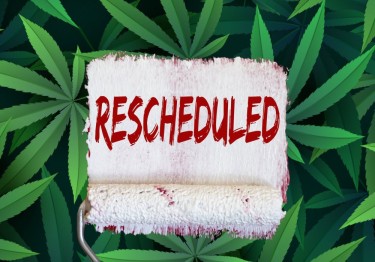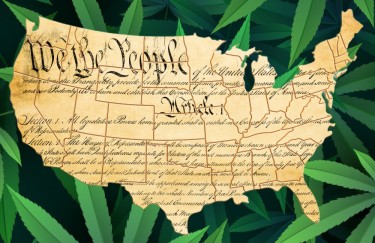
From fervent anti-drug crusader to disconnected senior statesman to the unlikely champion of the regulated marijuana trade, President Joe Biden’s public journey might still hold surprises.
A year after instigating the most substantial shift in federal marijuana policy since 1970, the very politician whose stance as a U.S. senator fueled the drug war’s intensity has, as president, established the foundation for a reliable and enduring legal marijuana sector.
“Regardless of your opinion of him,” remarked Andrew Kline, senior counsel at the national law firm Perkins Coie in Denver, “this industry owes him some recognition.”
How It All Began
Drug reform advocates weren’t optimistic about the Biden administration. As a senator with a tough stance on law and order, Biden faced mockery during the 2020 campaign for resisting the shift in public attitudes toward drug use. However, his October 2022 acknowledgment that five decades of federal marijuana prohibition had been a “failed approach” marked the most pro-reform stance taken by a sitting president.
Following Biden’s executive order instructing federal health regulators to reassess the nation’s marijuana regulations swiftly, the climax occurred on August 29 with a recommendation from the U.S. Department of Health and Human Services (HHS).
The proposal advocated for reclassifying the drug as a Schedule 3 controlled substance. Notably, this recommendation signifies the federal government’s inaugural recognition of marijuana’s medicinal value.
Legal analysts argue that the U.S. Drug Enforcement Administration (DEA) is compelled to formalize the recommendation, providing instant relief to cannabis operators and exempting them from Section 280E of the IRS code. Section 280E prohibits plant-touching businesses from claiming standard business deductions on federal tax returns.
The swift emergence of this recommendation, within a year of the review’s initiation, strongly signals the White House’s genuine commitment to drug policy reform. Observers suggest that a potential second Biden term could potentially lean towards facilitating interstate marijuana commerce and pursuing federal legalization.
Current Progress
By mid-October, the DEA was evaluating the recommendation, marking the final step before the agency proposed a change to federal law. However, this hurdle now appears more like a mere formality.
The Congressional Research Service think tank’s analysis indicates that historically, the DEA has refrained from contradicting health regulators’ recommendations on science and health, potentially due to a lack of authority. Consequently, there is a strong likelihood that the DEA will endorse the HHS’ recommendation and introduce a proposed rule change.
Predictions align with a potential announcement by the end of the year, a timeline anticipated by Howard Sklamberg, a former high-ranking enforcement official at the Food and Drug Administration and current partner at the Washington DC-based law firm Arnold & Porter.
“He doesn’t anticipate it taking too long,” remarked Sklamberg, who accurately predicted the expedited arrival of the HHS recommendation. “They’re eager to wrap this up,” he added. Ideally, they’ll have the final rule in place by 2024 – and probably not too late in the year, considering the political cycle.
This could potentially position Biden, the primary supporter and main advocate for the infamous 1994 crime bill that led to a surge in nonviolent drug offenders in the nation’s prisons, to campaign for reelection with the accomplishment of “doing more than any other president to legalize marijuana” on his record. Such a narrative could be pivotal in cannabis-friendly swing states like Florida, Ohio, and Pennsylvania.
“Biden wasn’t known for being cannabis-friendly,” noted Aaron Miles, Chief Investment Officer of Chicago-based marijuana multistate operator Verano Holdings Corp. At one point, he even referred to this as a ‘gateway drug.’ For this administration to embrace it as medicine is truly monumental.
What’s The Way Forward
Although drugs have undergone rescheduling and even descheduling in the past, as seen with Epidiolex, the hemp-derived CBD-rich epilepsy treatment, the DEA initially classified it as a Schedule 5 drug in 2018 before completely removing it from the Controlled Substances Act (CSA) in 2020. Experts find little precedent for rescheduling marijuana that would offer a clear roadmap for the future.
“It’s entirely fair to say it’s unprecedented,” remarked Jonathan Caulkins, a drug policy researcher and professor at Carnegie Mellon University in Pittsburgh. “This is a botanical, No. 1,” noted Kline of Perkins Coie. “And, No. 2, there has never been a nationwide marketplace for a drug that the FDA hasn’t approved like this.”
Nonetheless, policy experts assert that there is a generally agreed-upon process that the rescheduling recommendation will follow from this point onward.
Once the DEA assesses the potential impacts of rescheduling on legal and policy matters, including U.S. commitments to international drug-control treaties, the agency initiates the federal rulemaking process outlined in the Administrative Procedures Act. The DEA releases a proposed rule and opens a window for public comment, typically lasting 30 to 60 days.
These comments are then carefully considered, with responses provided in some instances—either directly or through a comprehensive statement addressing common concerns.
The rule’s issuance could occur as early as the end of the year, indicating that the rescheduling might come into effect the following spring. According to Kline, it’s crucial to note that the rescheduling recommendation binds the DEA and cannot contradict the medical and scientific evaluation, as mandated by statute.
Observers anticipate the likelihood of lawsuits, originating from both opponents of legalization aiming to maintain strict marijuana prohibition and proponents of legalization advocating for the complete de-scheduling of the drug.
In either case or a mix of both, there exists the potential for a judge to issue an injunction, temporarily halting the rescheduling process until the legal dispute is resolved. This could prompt government appeals, potentially escalating the rescheduling issue to the U.S. Supreme Court.
Justice Clarence Thomas’ recent assertion that “a prohibition on… marijuana may no longer be necessary” adds an exciting dimension, suggesting that the nation’s highest court could become the ultimate battleground for a decisive outcome.
Regardless of the legal trajectory, rescheduling holds the promise of federal tax reform—an eagerly awaited development within the industry.
What Still Must Happen
Critics and skeptics have emphasized that rescheduling doesn’t equate to legalization. Moving cannabis from Schedule 1 to Schedule 3 of the CSA, allowing doctors and DEA-licensed pharmacies to provide FDA-approved drugs like anabolic steroids, ketamine, and Tylenol with codeine. As such, this could introduce more uncertainties than resolutions for an industry that predominantly operates independently of physicians and mainstream pharmacies.
Joshua Horn from the Philadelphia-based law firm Fox Rothschild notes that it might be a “halfway victory for the industry” if federal authorities suddenly insist on doctors prescribing marijuana like other drugs.
Another potential complication lies in the possibility of a new resident at the White House. With Biden’s approval rating at 42% in August, according to Gallup, and a closely contested race with former President Donald Trump in most presidential polls, there’s a chance he could lose his reelection bid.
While Trump took a mostly hands-off approach, offering no favors to the cannabis industry but generally leaving state-legal marijuana untouched, a new president might decide to change course, especially with marijuana reform becoming more closely associated with Democrats.
Despite neither Trump nor his Republican rivals making marijuana a focal point in the 2024 campaign, the future president could use their authority to alter the trajectory once again.
THE PATH TO LEGALIZATION, READ ON…
IS FEDERAL MARIJUANA PROHIBITION NOW UNCONSTITIONAL?
- SEO Powered Content & PR Distribution. Get Amplified Today.
- PlatoData.Network Vertical Generative Ai. Empower Yourself. Access Here.
- PlatoAiStream. Web3 Intelligence. Knowledge Amplified. Access Here.
- PlatoESG. Carbon, CleanTech, Energy, Environment, Solar, Waste Management. Access Here.
- PlatoHealth. Biotech and Clinical Trials Intelligence. Access Here.
- Source: http://cannabis.net/blog/news/rescheduling-is-not-legalization-problems-that-could-popup-even-if-the-dea-moves-cannabis-to-a




